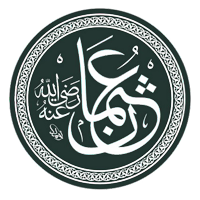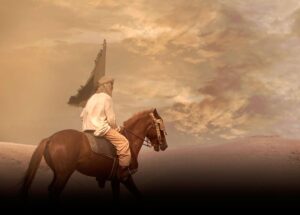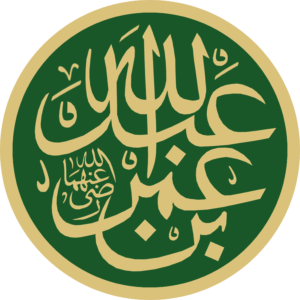
A summary of ‘Uthmaan’s khilaafah, his conquests and his attempts to improve the economic position of Muslims worldwide
Ulama Institute #1
Looking to learn Arabic or memorize the Quran?
Check our Trusted Teachers

- The expansion of the Muslim empire took place as a result of two things:
(1) defense of Muslim lands and
(2) the desire to spread Islam (da’wah). - The areas under Muslim control were frequently under attack from forces that were hostile towards Islam. This made defense necessary and kept the Muslim armies alert. There was also the added responsibility of each Muslim to spread the message of Islam throughout the world. The victories achieved by ‘Umar in Iraq and Iran had almost completely destroyed the Persian Empire.
- However, there was still some land under Persian control. After the death of ‘Umar, some of the people who lived in sections of land taken by the Muslims, rebelled. ‘Uthmaan told Al-Waleed ibn ‘Uqbah, the governor of Kufah in Iraq, to take steps against them.
Al-Waleed fought against the people of Azerbaijan and they agreed to pay Zakah again. He sent a force to Armenia, but because of the difficult terrain it could not be conquered completely. In the same year, the people of Ray in Iran, were overpowered by Aboo Moosaa Al-Ash’ari. An uprising was also put down at Alexandria, in Egypt. Al-Waleed was ordered by ‘Uthmaan to send 10,000 soldiers to Syria under the command of Salmaan al-Farsee to defeat the Romans who had attacked the Muslim frontiers. The Romans lost some of their fortresses. After these successes, the Muslims also conquered Asia Minor and went as far as the shores of the Black Sea. In Egypt, ‘Abdullaah ibn Aboo As-Sarh pushed the armies beyond Tripoli and threatened Carthage and the far west. He was challenged by a massive Roman Army. He requested ‘Uthmaan to send 10, 000 men to assist the Muslim armies. The Romans were determined to kill the Muslim leader and this led to a major battle. The Roman leader was killed by ‘Abdullaah ibn Az-Zubayr and the Romans suffered a huge defeat. - The Islamic state had reached all corners of the globe and this led to the need for a fleet capable of assisting the Muslim armies in places such as Africa and Europe. ‘Uthmaan gave Mu’aawiyah ibn Abee Sufyaan, the governor of Syria at that time, permission to build a naval force. The first fleet was established in 28 A.H., under the command of Aboo Qays. The fleet was joined by ‘Abdullaah ibn Abee As-Sarh together with other ships manned by Egyptian and Arab warriors.
- The fleet moved towards Cyprus. The Muslim armies conquered Cyprus and took a large number of men captive. On the day of victory, Aboo Ad-Dardaa’, a great Companion of the Prophet, burst into tears. He was questioned about his sudden feeling of sadness even though the army had tasted victory. He explained that he was sad because the Cypriots had disobeyed Allah in the past and were now totally defeated. The Byzantines made large preparations to regain all their losses suffered at the hands of the Muslims. Three years after the fall of Cyprus they gathered a fleet of six hundred warships and attacked the Muslims at sea. With a smaller force the Muslims still managed to defeat the Greeks. Under the rule of ‘Uthmaan the Muslims expanded the Islamic state in every direction. Many of the inhabitants of the conquered lands embraced Islam.
- Muslims gained great wealth from the countries and territories conquered during the khilaafah of ‘Uthmaan. At the same time ‘Uthmaan instructed the governors of all territories under Muslim control to upgrade their areas. They constructed roads, set up educational institutions, and promoted trade and agricultural development. In 29 A.H., ‘Uthmaan ibn ‘Affaan performed Hajj, and in the same year, he brought about the expansion of Al-Masjid An-Nabawi and constructed pillars of stone.
- ‘Uthmaan ibn ‘Affaan was a business man and was accustomed to wealth. During his period as khaleefah, he made great efforts to increase the wealth and economic position of Muslims throughout the world. It was his desire to see Islam spread throughout the world and he hoped that the conquered areas would flourish under Muslim control.
What we learn from the lesson:
- ‘Uthmaan told Al-Waleed ibn ‘Uqbah, the governor of Kufah in Iraq, to take steps against rebels in the Persian Empire.
- Muslim forces entered: Azerbaijan, Armenia, Iran, Syria, Asia Minor, the shores of the Black Sea, Tripoli, and Carthage. The Romans were also defeated.
- He established a strong Muslim fleet and defeated Cyprus.
- ‘Uthmaan upgraded areas under Muslim control and expanded Al-Masjid An-Nabawi.
- He wanted to see Islam spread throughout the world.
‘Uthmaan: His Compilation of the Qur’aan
‘Uthmaan The efforts that he made to preserve the Qur’aan in its true form.
- ‘Uthmaan ibn ‘Affaan accomplished many excellent achievements during his term as the third khaleefah of the Muslims. One of the greatest services rendered to Islam by Uthmaan was safeguarding the manuscripts of the Qur’aan against any changes. This must rank as the most important of all his achievements as the third khaleefah of the Muslims.
- Thousands of people from various places embraced Islam as a result of the expansion of Muslim lands. These nations spoke different languages and dialects (different ways in which the same language is spoken or words are pronounced). Hudhayfah ibn Al-Yamaan, a prominent Companion, was concerned about their recitation of the Qur’aan. In the many times that Hudhayfah had traveled, he noticed many differences in the manner of Qur’aanic recitation. The Syrians recited in a way that differed from the people in Kufa. The Kufis differed from the Basrites and this trend continued with other groups as well. A major reason why these differences occurred was the way Arabic was written.
- On his return to Madeenah, Hudhayfah pleaded with ‘Uthmaan to save the ummah before it disagrees with regard to the Qur’aan. ‘Uthmaan was alarmed by the news and convened a gathering of the leading Companions. He informed them of what Hudhayfah had told him and requested their advice on this matter. The Companions in turn asked ‘Uthmaan what he thought the best plan of action was. He said that official copies of the Qur’aan should be written and sent to all the provinces. At the same time all other copies should be destroyed so that the ummah would have one standard Qur’aan. This standard version would serve to unite the Muslims with one recitation.
- After the Companions had agreed to ‘Uthmaan’s ideas, he asked Hafsah, the daughter of ‘Umar ibn Al-Khattaab, to loan him the mus-haf (pages of the Qur’aan) that Aboo Bakr had compiled. ‘Uthmaan chose a committee of four people to recompile the mus-haf of Aboo Bakr. The four members were: Zayd ibn Thaabit, ‘Abdullaah ibn Az-Zubayr, Sa’eed ibn Al-‘Aas and ‘Abd Ar-Rahmaan ibn Al-Haarith. He chose Zayd ibn Thaabit for the same reasons Aboo Bakr had chosen him before. Sa’eed ibn Al-‘Aas was known for his knowledge of the Arabic language. The other two members were respected Companions who had good knowledge of the Arabic language and the Qur’aan.
- Apart from Zayd, the other three members were from Quraysh. ‘Uthmaan chose the team in this way so that spelling differences could be ironed out. ‘Uthmaan instructed them to spell words in the dialect of Quraysh, if any spelling differences occurred. A good example of this process took place when a difference arose with the spelling of taaboot (wooden chest). They could either write the word in the Qurayshi style of taaboot or the Madani style of tabooh. ‘Uthmaan told them to write it as taaboot, which was the style of Quraysh.
- This incident showed that the committee consulted with the other Companions so that there was full agreement on the text. After completion of the task, ‘Uthmaan ordered that a copy of this mus-haf be sent to every province. The governors of each province were ordered to burn all the other copies of the Qur’aan in their provinces. This measure was necessary to preserve Muslim unity through the Qur’aan.
- By his wise decision, ‘Uthmaan provided a copy of the Qur’aan that would serve as a model for all Muslims. This act of ‘Uthmaan once again showed his love for Islam and the efforts he made to preserve Islam in its true form. He will always be remembered for his generosity and noble morals. It is an advantage for a Muslim to follow the good examples of ‘Uthmaan as shown in his pious and soft-spoken nature.
What we learn from the lesson:
- One of the greatest services rendered to Islam by ‘Uthmaan, was safeguarding the manuscripts of the Qur’aan against changes.
- There were differences in the manner of recitation of the Qur’aan
- Hudhayfah pleaded with ‘Uthmaan to save the ummah before it disagreed with regard to the Qur’aan.
- ‘Uthmaan said that official copies of the Qur’aan should be written and sent to all the provinces.
- All other copies should be destroyed so that the ummah would have one standard Qur’aan.
- They used the mus-haf that Aboo Bakr had ordered to be compiled.
- A committee of four people rewrote the mus-haf of Aboo-Bakr
- ‘Uthmaan provided a copy of the Qur’aan that served as a model for all Muslims.
“Discussion:”
- Who made ‘Uthmaan aware of the different ways in which the Qur’aan was being recited?
- Why did these differences in recitation occur?
- Whose compilation was rewritten in order to preserve the original Qur’aan?
- Name the four members of the committee who rewrote the mushaf of Aboo Bakr
- Why was it necessary to burn all other copies of the Qur’aan once the committee had completed its work?
- For what reasons do you think that ‘Uthmaan will be most remembered?







